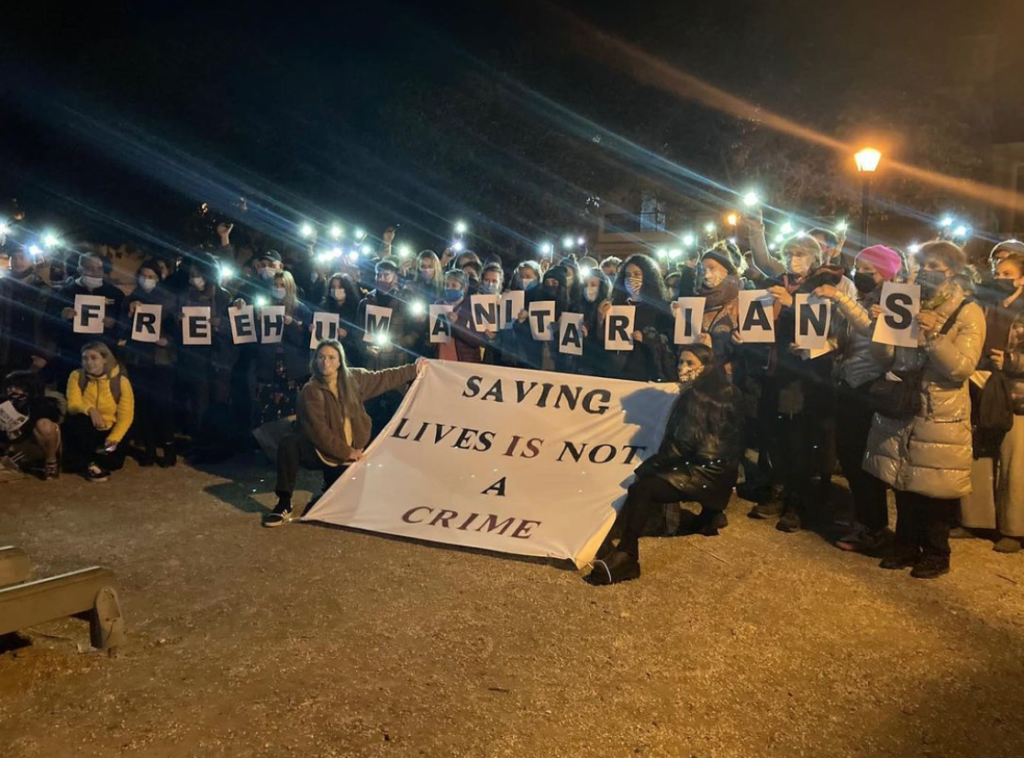Not enough food
Up to 60% of current residents of Greek refugee camps do not have access to enough food because of a halt to cash assistance for asylum seekers and denial of food support to both rejected asylum seekers and recognized refugees. A law that was passed last year came into effect this month and stopped the Greek government from providing services to those whose asylum applications have been accepted. Additionally, one month after the management of the EU-funded cash assistance programme changed from the UNHCR to the Greek government, interruptions continue. This leaves many people with nothing, forcing them to beg in the streets or depend on local social services where they are available. Witnessing this dire situation, 27 NGOs are calling on the Greek authorities to resume the cash distribution, provide emergency assistance or distribute vouchers to use in shops and for transport.
“Criminalizing Solidarity”
Three humanitarians are accused of criminal activities on Lesvos and were supposed to stand trial this November for helping migrants in distress. Back in 2018 Sarah Mardini, Sean Binder and Nassos Karaktisos were alerting Greek coastguards whenever they spotted boats in distress off the shores of Lesvos at night. The trial was scheduled for November 2021 but was postponed to an undetermined date in 2022. With these accusations, the Greek government attempts to “characterise any civil society efforts to reduce suffering at the border as criminal”, an article in The New Arab reports. The outcome of the trial would have had far reaching effects on many similar cases where other humanitarians are also accused of baseless charges such as people smuggling, espionage and violating state secrets. Shortly after the postponement of the trial, new evidence came to light regarding the real intentions of the Greek Government: “Greek government officials acknowledge that one of the main objectives was to remove Europeans, mainly volunteers – activists. Lawsuits against NGOs are better served as long as they remain pending”, reports Kathimerini.
Arrivals, push backs and numbers
In October, a total of 88 illegal push backs were registered by Aegean Boat Report. This means that the Hellenic coast guard denied the right to seek asylum to over 2100 children, women and men in one month alone. As of the 21st of November, a total of 99 boats with approximately 2800 people were pushed back by the coast guard. During that same time, 26 boats with 423 people arrived to the shores of the islands. Transfers to the mainland have increased slightly. In the first three weeks of November, 1040 were moved to the mainland leaving a total population of around 3900 on the Aegean islands.
Staying in Tents for the winter
Although it was supposed to be temporary, the Mavrovouni camp is still hosting 2550 people in hastily erected tents at the end of November 2021. Winter is here on Lesvos, where average temperatures reach around 8 degrees on December nights and there can even be snow. At the moment, tents are being exchanged with containers. The dire conditions in the camp also explain why the government has transferred many children, pregnant women and sick people to the mainland recently. The tendering process for the new facilities on Lesvos and Chios is still ongoing, as reported by the EU Commission this month. In Kos and Leros, however, the new “reception camps” which are closed and controlled, opened on the 27th of November.

